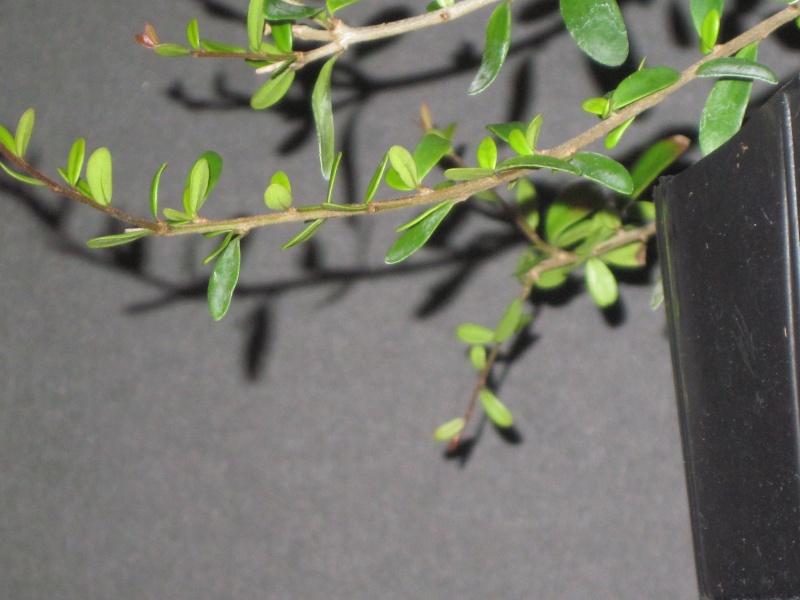id please!!!!!
+4
Ryan B
Ka Pabling
海上闻樵
ogi uyehara
8 posters
Page 1 of 2
Page 1 of 2 • 1, 2 
 id please!!!!!
id please!!!!!
this tree came from china... The person who import here dont know the latin name....can you haelp me id this tree





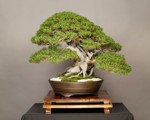
ogi uyehara- Member
 Re: id please!!!!!
Re: id please!!!!!
這棵樹是赤楠。
This tree is the tree Syzygium buxifolium.
School name:Syzygium buxifolium
This tree is the tree Syzygium buxifolium.
School name:Syzygium buxifolium
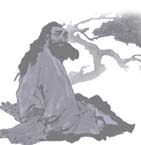
海上闻樵- Member
 Re: id please!!!!!
Re: id please!!!!!
這棵樹是赤楠
what can you say about the behavior of this tree?? is it fast growing?? do it needs a lot of water...totally i do not have an idea of this tree...can you give me advice??
any advice will help pls.
ogi uyehara
what can you say about the behavior of this tree?? is it fast growing?? do it needs a lot of water...totally i do not have an idea of this tree...can you give me advice??
any advice will help pls.
ogi uyehara

ogi uyehara- Member
 Re: id please!!!!!
Re: id please!!!!!
Hi Ogi,
I had one of this in UK its a nice material for bonsai but very hard to pronounce and even harder to wire, the twigs are so fine and brittle. How long has it been with you?
Best regards
ka pabling

Ka Pabling- Member
 Re: id please!!!!!
Re: id please!!!!!
Ogi,
Ka is right, these things are brittle!!!! My first attempt at wiring one nearly killed it, and that was a youngish tree and smallish branches!
Here's the information you need, I think, though it's in English.
http://www.bonsai-bci.com/species/eugenia.html
Hope this species guide helps. If you want to see others, their pseudonymns are "brush Cherry" "australian Brush Cherry" Dwarf Eugenia"...google any of these with "bonsai" and, after you sift through Bonsai Boy crap, you'll find some good examples.
Ka is right, these things are brittle!!!! My first attempt at wiring one nearly killed it, and that was a youngish tree and smallish branches!
Here's the information you need, I think, though it's in English.
http://www.bonsai-bci.com/species/eugenia.html
Hope this species guide helps. If you want to see others, their pseudonymns are "brush Cherry" "australian Brush Cherry" Dwarf Eugenia"...google any of these with "bonsai" and, after you sift through Bonsai Boy crap, you'll find some good examples.
Ryan B- Member
 Re: id please!!!!!
Re: id please!!!!!
tnxs ka Pabling... planning to buy...I am just researching before I buy, its a new material for me
Ryan... tnxs for giving time
Ryan... tnxs for giving time

ogi uyehara- Member
 Re: id please!!!!!
Re: id please!!!!!
Ka Pabling wrote:Ogi,
Dont buy,
ka pabling
Why not Mang Pabling? the tree looks very promising. Will it not survive in the tropics?
regards,
jun
Guest- Guest
 ID Please
ID Please
I dunno.  Trees sprout wings nowadays & fly from one continent to another. Your tree shouted at me. I would swear that is Neea buxifolia. I Googled on Syzygium buxifolium & it does not look exactly the same. For one thing, the Myrtle family have opposite leaves, while Neea has alternate leaves. Since it looks as though it needs a rest anyway, let it grow out until it blooms. Then you will be sure.
Trees sprout wings nowadays & fly from one continent to another. Your tree shouted at me. I would swear that is Neea buxifolia. I Googled on Syzygium buxifolium & it does not look exactly the same. For one thing, the Myrtle family have opposite leaves, while Neea has alternate leaves. Since it looks as though it needs a rest anyway, let it grow out until it blooms. Then you will be sure.
From my limited knowledge & experience:
Neea is an understory tree & likes a little shade, probably more in your climate than mine. It is originally from Puerto Rico & should do fine in the Philippines. Although it prefers some sun, if it has been indoors or the shade, it is very susceptible to sunburn. My little ones were set back a couple of months. It is very amenable to bonsai treatment & popular in Florida. They grow big fat ones & treat them like boxwood.
Iris
 Trees sprout wings nowadays & fly from one continent to another. Your tree shouted at me. I would swear that is Neea buxifolia. I Googled on Syzygium buxifolium & it does not look exactly the same. For one thing, the Myrtle family have opposite leaves, while Neea has alternate leaves. Since it looks as though it needs a rest anyway, let it grow out until it blooms. Then you will be sure.
Trees sprout wings nowadays & fly from one continent to another. Your tree shouted at me. I would swear that is Neea buxifolia. I Googled on Syzygium buxifolium & it does not look exactly the same. For one thing, the Myrtle family have opposite leaves, while Neea has alternate leaves. Since it looks as though it needs a rest anyway, let it grow out until it blooms. Then you will be sure.From my limited knowledge & experience:
Neea is an understory tree & likes a little shade, probably more in your climate than mine. It is originally from Puerto Rico & should do fine in the Philippines. Although it prefers some sun, if it has been indoors or the shade, it is very susceptible to sunburn. My little ones were set back a couple of months. It is very amenable to bonsai treatment & popular in Florida. They grow big fat ones & treat them like boxwood.
Iris
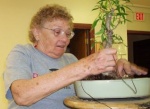
bonsaisr- Member
 Re: id please!!!!!
Re: id please!!!!!
bonsaisr,
tnxs for the time... I think this a Syzygium buxifolium i just google this wbsite...
http://www.bonsailab.it/english/works%20pages/chinese%20myrtle.htm
but still researching it just to make sure
Ogi Uyehara
tnxs for the time... I think this a Syzygium buxifolium i just google this wbsite...
http://www.bonsailab.it/english/works%20pages/chinese%20myrtle.htm
but still researching it just to make sure
Ogi Uyehara

ogi uyehara- Member
 Re: id please!!!!!
Re: id please!!!!!
Hi Ogi ,Jun,
If Irish is right that this is a neea buxifoiia , it will survive here, if it is a syzygium buxifoliun,which I think it is, it will not survive here.
There is another syzygium, I think its syzygium sp or the eugenia sp or bush berry will survive here, I have some in my garden doing well.
Best regards
ka pabling
If Irish is right that this is a neea buxifoiia , it will survive here, if it is a syzygium buxifoliun,which I think it is, it will not survive here.
There is another syzygium, I think its syzygium sp or the eugenia sp or bush berry will survive here, I have some in my garden doing well.
Best regards
ka pabling

Ka Pabling- Member
 Re: id please!!!!!
Re: id please!!!!!
海上闻樵 wrote:這棵樹是赤楠。
This tree is the tree Syzygium buxifolium.
School name:Syzygium buxifolium
This is Absolutely correct. about the possibility of it being a Neea buxifolia> No Way!!!
Kind regards,
Jose Luis
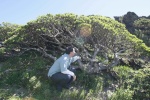
jrodriguez- Member
 Re: id please!!!!!
Re: id please!!!!!
Ogi,
I just realize that this is a Eugenia! They live well here in Florida. It is a Eugenia foetida ( aka E. buxifolia,E. myrtoides). The leaves when crushed smell not so good . The "other" Eugenia is the Surinam Cherry (Pitanga), Eugenia uniflora.
. The "other" Eugenia is the Surinam Cherry (Pitanga), Eugenia uniflora.
We usually grow it with "clip and grow" technique as it is very brittle.
-dorothy
I just realize that this is a Eugenia! They live well here in Florida. It is a Eugenia foetida ( aka E. buxifolia,E. myrtoides). The leaves when crushed smell not so good
We usually grow it with "clip and grow" technique as it is very brittle.
-dorothy
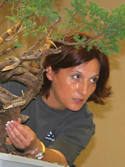
dorothy7774- Member
 ID Please
ID Please
OMG department.  I looked up a close-up of Neea buxifolia, and I don't think that's what I've got. But my plants look exactly like yours, which your experts say is Syzygium buxifolium. It's hard to tell from the photograph. Does your tree have opposite or alternate leaves. Please let your plant grow out till it blooms.
I looked up a close-up of Neea buxifolia, and I don't think that's what I've got. But my plants look exactly like yours, which your experts say is Syzygium buxifolium. It's hard to tell from the photograph. Does your tree have opposite or alternate leaves. Please let your plant grow out till it blooms.
Dorothy, although they look very much alike, Eugenia foetida is not the same as S. buxifolium.
Iris
 I looked up a close-up of Neea buxifolia, and I don't think that's what I've got. But my plants look exactly like yours, which your experts say is Syzygium buxifolium. It's hard to tell from the photograph. Does your tree have opposite or alternate leaves. Please let your plant grow out till it blooms.
I looked up a close-up of Neea buxifolia, and I don't think that's what I've got. But my plants look exactly like yours, which your experts say is Syzygium buxifolium. It's hard to tell from the photograph. Does your tree have opposite or alternate leaves. Please let your plant grow out till it blooms.Dorothy, although they look very much alike, Eugenia foetida is not the same as S. buxifolium.
Iris

bonsaisr- Member
 Re: id please!!!!!
Re: id please!!!!!
Dorothy,
Tnxs for the message in FB... Yes it would be a challenge for me..
Luis,
if this is a Syzygium buxifolium, do you know if this will grow here in Manila?
To all.,
Tnxs for the time in helping me identify this kind of tree...but this tree came here early last month... and they repotted it immediately because the medium is a brown stickky clay,,,the picture with the leaves is newly sprouted... so it means it can grow here... I like challenges let see what will be my decision wether to buy it or not.... maybe 80% i will buy....but there is a 20% not to buy....Jun is correct... the material has a potencial
ogi
Tnxs for the message in FB... Yes it would be a challenge for me..
Luis,
if this is a Syzygium buxifolium, do you know if this will grow here in Manila?
To all.,
Tnxs for the time in helping me identify this kind of tree...but this tree came here early last month... and they repotted it immediately because the medium is a brown stickky clay,,,the picture with the leaves is newly sprouted... so it means it can grow here... I like challenges let see what will be my decision wether to buy it or not.... maybe 80% i will buy....but there is a 20% not to buy....Jun is correct... the material has a potencial
ogi

ogi uyehara- Member
 Re: id please!!!!!
Re: id please!!!!!
ogi uyehara wrote:Dorothy,
(...) do you know if this will grow here in Manila?
Look around : if this species grows where you live, then you will have real-life examples of what it maight look like as a bonsai.
If you've never seen this species in your environment, maybe it would be more sensible to choose something else to start "bonsaiing"...
My two euro-cents.

AlainK- Member
 Re: id please!!!!!
Re: id please!!!!!
..but Europeans got tropical trees too, specially ficus.
I am willing to take it Ogi, if you change your mind. That tree is worth the risk. I already have a plan for it.

regards,
jun
I am willing to take it Ogi, if you change your mind. That tree is worth the risk. I already have a plan for it.
regards,
jun
Guest- Guest
 Re: id please!!!!!
Re: id please!!!!!
Ogi,
I have seen this tree is Taiwan, Guandong and Indonesia. It requires an excrutiating amout of water. The only thing that worries me is the central trunk. Usually, this wood will turn black when dry. Healthy bark (pi-i) is usually orange in color, similar to guava. From the looks of this tree, it originated in Fujian Province in China. A great many of these trees have been imported to the UK, so much so that an article on them was featured in Bonsai Focus a while back.
The natural habitat of this species is rather widespread. Below, some information on it:
*Syzygium buxifolium Hooker & Arnott, Bot. Beechey Voy. 187. 1833.
赤楠 chi nan
Shrubs or small trees. Branchlets blackish brown when dry, 4- or 6-angled. Leaves opposite or ternate; petiole ca. 2 mm; leaf blade broadly elliptic, elliptic, orbicular, obovate, or broadly obovate, 1-3 × 0.5-2(-2.2) cm, leathery, abaxially slightly pale when dry, adaxially dark brown and not glossy when dry, abaxially glandular, secondary veins numerous, 1-1.5 mm apart, abaxially slightly raised, and adaxially inconspicuous or depressed, intramarginal veins 1-1.5 mm from margin and depressed or not, base broadly cuneate, cuneate, or obtuse, apex rounded, obtuse, or acute and sometimes with an obtuse cusp. Inflorescences terminal, cymes, ca. 1 cm, several-flowered. Flower buds ca. 3 mm. Hypanthium obconic, ca. 2 mm. Calyx lobes shallow wavy. Petals 4, white, distinct, ca. 2 mm. Stamens ca. 2.5 mm. Style as long as stamens. Fruit red turning purplish black, globose, 5-7 mm in diam. Fl. Jun-Aug, fr. Oct-Dec.
Sparse forests or scrub in mountains, hills; 200-1200 m. Anhui, Fujian, Guangdong, Guangxi, Guizhou, Hainan, Hubei, Hunan, Jiangxi, Sichuan, Taiwan, Zhejiang [S Japan (Okinawa), Vietnam].
1 Leaves opposite; leaf blade broadly elliptic, elliptic, or sometimes broadly obovate, 1.5-3 × 1-2 cm, secondary and intramarginal veins adaxially flattened; branchlets 4-angled. 37a var. buxifolium
+ Leaves ternate especially apically on branchlets or opposite; leaf blade broadly elliptic, elliptic, orbicular, or sometimes obovate, 1-2.5 × 0.5-1(-2.2) cm, secondary and intramarginal veins adaxially sometimes depressed; branchlets 4- or 6-angled.
Being in the eugenia family, these are highly adaptable to climate change, although they might grow best under shade cloth. Before purchasing, make sure that the top portion buds out. If it doesn't, growing a proportional too trunk will take you forever.
Warm Regards,
Jose Luis
I have seen this tree is Taiwan, Guandong and Indonesia. It requires an excrutiating amout of water. The only thing that worries me is the central trunk. Usually, this wood will turn black when dry. Healthy bark (pi-i) is usually orange in color, similar to guava. From the looks of this tree, it originated in Fujian Province in China. A great many of these trees have been imported to the UK, so much so that an article on them was featured in Bonsai Focus a while back.
The natural habitat of this species is rather widespread. Below, some information on it:
*Syzygium buxifolium Hooker & Arnott, Bot. Beechey Voy. 187. 1833.
赤楠 chi nan
Shrubs or small trees. Branchlets blackish brown when dry, 4- or 6-angled. Leaves opposite or ternate; petiole ca. 2 mm; leaf blade broadly elliptic, elliptic, orbicular, obovate, or broadly obovate, 1-3 × 0.5-2(-2.2) cm, leathery, abaxially slightly pale when dry, adaxially dark brown and not glossy when dry, abaxially glandular, secondary veins numerous, 1-1.5 mm apart, abaxially slightly raised, and adaxially inconspicuous or depressed, intramarginal veins 1-1.5 mm from margin and depressed or not, base broadly cuneate, cuneate, or obtuse, apex rounded, obtuse, or acute and sometimes with an obtuse cusp. Inflorescences terminal, cymes, ca. 1 cm, several-flowered. Flower buds ca. 3 mm. Hypanthium obconic, ca. 2 mm. Calyx lobes shallow wavy. Petals 4, white, distinct, ca. 2 mm. Stamens ca. 2.5 mm. Style as long as stamens. Fruit red turning purplish black, globose, 5-7 mm in diam. Fl. Jun-Aug, fr. Oct-Dec.
Sparse forests or scrub in mountains, hills; 200-1200 m. Anhui, Fujian, Guangdong, Guangxi, Guizhou, Hainan, Hubei, Hunan, Jiangxi, Sichuan, Taiwan, Zhejiang [S Japan (Okinawa), Vietnam].
1 Leaves opposite; leaf blade broadly elliptic, elliptic, or sometimes broadly obovate, 1.5-3 × 1-2 cm, secondary and intramarginal veins adaxially flattened; branchlets 4-angled. 37a var. buxifolium
+ Leaves ternate especially apically on branchlets or opposite; leaf blade broadly elliptic, elliptic, orbicular, or sometimes obovate, 1-2.5 × 0.5-1(-2.2) cm, secondary and intramarginal veins adaxially sometimes depressed; branchlets 4- or 6-angled.
Being in the eugenia family, these are highly adaptable to climate change, although they might grow best under shade cloth. Before purchasing, make sure that the top portion buds out. If it doesn't, growing a proportional too trunk will take you forever.
Warm Regards,
Jose Luis

jrodriguez- Member
 Re: id please!!!!!
Re: id please!!!!!
...you won't find the tree on the left side (picture) of your raft anymore. The tree needs few design adjustments though. hehehe. 
Guest- Guest
 Re: id please!!!!!
Re: id please!!!!!
Thanks. Photos can sometimes be confusing.jrodriguez wrote:
Yes, your tree is a Neea buxifolia.
Regards,
Jose Luis
Iris

bonsaisr- Member
Page 1 of 2 • 1, 2 
Page 1 of 2
Permissions in this forum:
You cannot reply to topics in this forum







